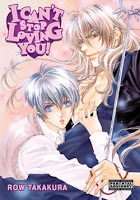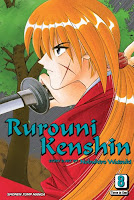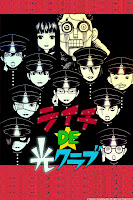My News and Reviews
Last week I posted two reviews in addition to announcing the winner of the Ayako manga giveaway. The giveaway post also lists all of the manga by Osamu Tezuka that I know of that has been licensed in English. As for the reviews, I took a look at Koji Suzuki’s quantum horror novel Edge and Kindred Spirit, the eleventh volume in Tsugumi Ohba and Takeshi Obata’s Death Note manga series. Suzuki is best known for his horror novel Ring, which has been adapted many times over. Edge was the first of his works that I’ve read. Unfortunately wasn’t particularly impressed by it. I wasn’t particularly impressed with Kindred Spirit, either, but I still plan on finishing the series. There’s only one more volume to go, after all. I also updated the Resources page. Somehow I ended up with a duplicate entry, which I deleted. In its place I added Junbungaku, one of my Japanese literature buddies.
A few fun things found online: Bento Books has launched a new Kickstarter project to publish Daigo Okazaki’s thriller Black Wave, set in the aftermath of the 2011 Tōhoku earthquake and tsunami. On Facebook Alexander O. Smith, the translator for the novel, talked a little about the project. He is donating his time to the project and any personal profit that he makes on the book will be donated to help the ongoing earthquake and tsunami recovery efforts in Japan.
March 2013 marks Dark Horse’s 25th year of publishing manga. On the Dark Horse blog, Carl Horn posts about Celebrating 25 Years of Manga. March has been declared manga month at Dark Horse, but I’m not entirely sure what that entails. The call for participation for March’s Manga Moveable Feast has been posted! This time we’ll be focusing on historical manga. Khursten of Otaku Champloo will be hosting the Feast from March 24 through April 1. Check out the links to find out how to participate. As always, I’m really looking forward to the Feast.
On a much sadder note, Toren Smith, a pioneer in the U.S. manga and anime industries, has unexpectedly passed away. Smith’s friend James Hudnall announced the news on his blog. Jonathan Clements posted a wonderfully written tribute to Smith on Manga UK’s blog. Michael Toole also wrote an extensive article honoring Smith at Anime News Network. I am primarily familiar with Smith’s translation work on series like Blade of the Immortal, but he was incredibly influential beyond that. He certainly will be missed.
Quick Takes
 I Can’t Stop Loving You, Volumes 1-2 by Row Takakura. Since I enjoy a bit of the supernatural mixed in with my boys’ love, I had hopes for I Can’t Stop Loving You. Unfortunately, I wasn’t particularly impressed by the manga as a whole. Kyouji is training to become an exorcist, but there’s one problem: he can’t see ghosts. Fortunately, his boyfriend Yu can. In part, I Can’t Stop Loving You is supposed to be a comedy, but it’s not really that funny. One of the running gags (before Takakura forgets about it) is that Yu is so strong that he and Kyouji can’t even have sex because he ends up inadvertently injuring him in the throes of passion. I’ll admit I found that funny, but the joke can’t sustain even one volume of this short series.
I Can’t Stop Loving You, Volumes 1-2 by Row Takakura. Since I enjoy a bit of the supernatural mixed in with my boys’ love, I had hopes for I Can’t Stop Loving You. Unfortunately, I wasn’t particularly impressed by the manga as a whole. Kyouji is training to become an exorcist, but there’s one problem: he can’t see ghosts. Fortunately, his boyfriend Yu can. In part, I Can’t Stop Loving You is supposed to be a comedy, but it’s not really that funny. One of the running gags (before Takakura forgets about it) is that Yu is so strong that he and Kyouji can’t even have sex because he ends up inadvertently injuring him in the throes of passion. I’ll admit I found that funny, but the joke can’t sustain even one volume of this short series.
 Rurouni Kenshin, Omnibus 8 (equivalent to Volumes 22-24) by Nobuhiro Watsuki. After the slight lull in the previous omnibus, this collection kicks Rurouni Kenshin‘s pacing up a notch. Kenshin’s past has been revealed and the scene has been set; the series leaps back into duels and confrontations. One of the things I like most about Watsuki’s action sequences is that each individual fighter has his (or her) own martial style. Visually, they are all different and make for engaging combat. I particularly liked the powerful elegance of Enishi’s Watōjutsu. I was also happy to see that both Saitō and Aoshi continue to have important roles in the series. What does seem to have gone missing is the series’ humor. Recently things have been leaning towards the more serious and dramatic.
Rurouni Kenshin, Omnibus 8 (equivalent to Volumes 22-24) by Nobuhiro Watsuki. After the slight lull in the previous omnibus, this collection kicks Rurouni Kenshin‘s pacing up a notch. Kenshin’s past has been revealed and the scene has been set; the series leaps back into duels and confrontations. One of the things I like most about Watsuki’s action sequences is that each individual fighter has his (or her) own martial style. Visually, they are all different and make for engaging combat. I particularly liked the powerful elegance of Enishi’s Watōjutsu. I was also happy to see that both Saitō and Aoshi continue to have important roles in the series. What does seem to have gone missing is the series’ humor. Recently things have been leaning towards the more serious and dramatic.
 Sayonara, Zetsubou-Sensei: The Power of Negative Thinking, Volumes 1-4 by Koji Kumeta. Although I’m enjoying Sayonara, Zetsubou-Sensei, it is a difficult manga to recommend to a general audience because so much of the comedy in the series relies on knowledge of Japanese society and culture. It presents a barrier, although there are plenty of translation notes which explain most of the references being made to help the reader along. I particularly appreciated the literature references, but then I’ve read many of the books being alluded to. The humor in Sayonara, Zetsubou-Sensei is satirical and rather bleak which is appropriate as the titular character frequently declares “I’m in despair!” over the smallest things.
Sayonara, Zetsubou-Sensei: The Power of Negative Thinking, Volumes 1-4 by Koji Kumeta. Although I’m enjoying Sayonara, Zetsubou-Sensei, it is a difficult manga to recommend to a general audience because so much of the comedy in the series relies on knowledge of Japanese society and culture. It presents a barrier, although there are plenty of translation notes which explain most of the references being made to help the reader along. I particularly appreciated the literature references, but then I’ve read many of the books being alluded to. The humor in Sayonara, Zetsubou-Sensei is satirical and rather bleak which is appropriate as the titular character frequently declares “I’m in despair!” over the smallest things.
 Lychee Light Club directed by Masahiro Takada. I was very intrigued when I first heard that a Lychee Light Club anime was being made. It turned out to be nothing like the manga by Usamaru Furuya upon which it is based. The Lychee Light Club anime is primarily a gag comedy. The manga wasn’t without humor, but it was of a very different type. The anime does require familiarity with the original story and characters in order to fully appreciate it and most of the jokes being made. I was vaguely amused, though, and I don’t regret the twenty-four minutes it took to watch the entire series. (It’s only eight episodes long, each of which are only three minutes.) But in the end the series is largely forgettable.
Lychee Light Club directed by Masahiro Takada. I was very intrigued when I first heard that a Lychee Light Club anime was being made. It turned out to be nothing like the manga by Usamaru Furuya upon which it is based. The Lychee Light Club anime is primarily a gag comedy. The manga wasn’t without humor, but it was of a very different type. The anime does require familiarity with the original story and characters in order to fully appreciate it and most of the jokes being made. I was vaguely amused, though, and I don’t regret the twenty-four minutes it took to watch the entire series. (It’s only eight episodes long, each of which are only three minutes.) But in the end the series is largely forgettable.

Speak Your Mind